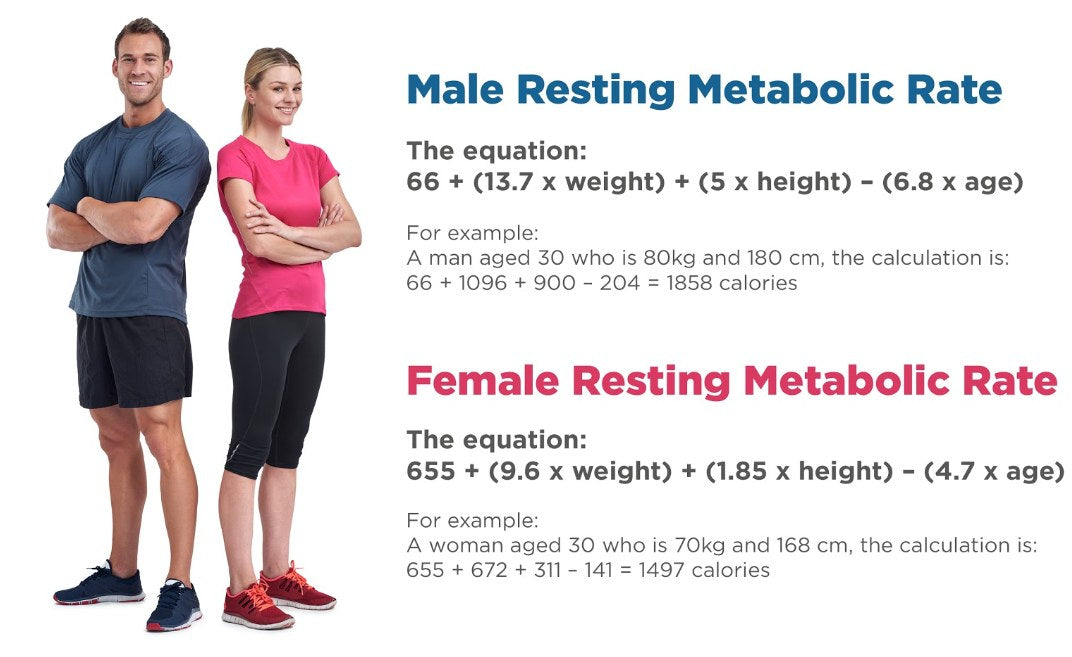What is resting metabolic rate?

Credit: Tanita Europe Blog
Resting metabolic rate (RMR) is the amount of energy the body burns during rest and the measurement is sometimes used as a benchmark for how efficiently your metabolism is working.
If you are focussed on maintaining or developing your fitness, you might be wondering what is a good resting metabolic rate and whether you should be trying to improve yours.
What is an average resting metabolic rate?
There are lots of different ways of measuring resting metabolic rate outside of a clinical setting and we are all different so there is no easy graph or table to see how you measure up. However, a rough, average, guide is that your resting metabolic rate will require around 1600 calories for men and 1400 calories for women, per day.
Resting metabolic rate vs basal metabolic rate
Resting metabolic rate formula
There are several different formulas for calculating your RMR. In a lab setting your RMR will be measured by monitoring your oxygen consumption and carbon-dioxide production, but most of us will need a straight-forward approach and the frequently-used Katch McKardle calculation is shown below:

However, if you use several different online calculators you will get several different answers, so what is the point of understanding your RMR?
Many of us over estimate the number of calories our body needs and the number of extra calories that we need if we are exercising regularly. This can mean that over consumption of calories sabotages our other efforts to maintain a fit and healthy body.
Having an indication of your RMR will help you to assess whether your diet is right based on the calories your body actually needs, so understanding it is useful to help you achieve personal goals such as losing or gaining weight.
Can working on your RMR help you lose weight?
Increasing your RMR might seem like a silver bullet when it comes to weight loss; however increasing your RMR and weight loss do not go hand in hand, in fact one of the few ways to definitely increase your RMR is to put on weight!
What affects my RMR?
- Age – your resting metabolic rate will begin to drop after the age of 20 which is why many people find they put on weight as they age. Also, as you age you tend to lose muscle which is a double whammy for lowering your RMR.
- Gender – men tend to have a higher RMR because of their higher muscle mass and lower body-fat percentage than women
- Weight – if you are very overweight, your body will use more calories to complete normal functions, so overweight people often have a higher RMR
- Muscle mass and Body fat % - building muscle and reducing your body fat percentage will have a positive impact on your RMR
- Temperature – internal and external temperature have an effect on RMR for example if you have a fever or if you are in a very cold environment
- Thyroxine – an underproductive thyroid gland can reduce your RMR significantly
